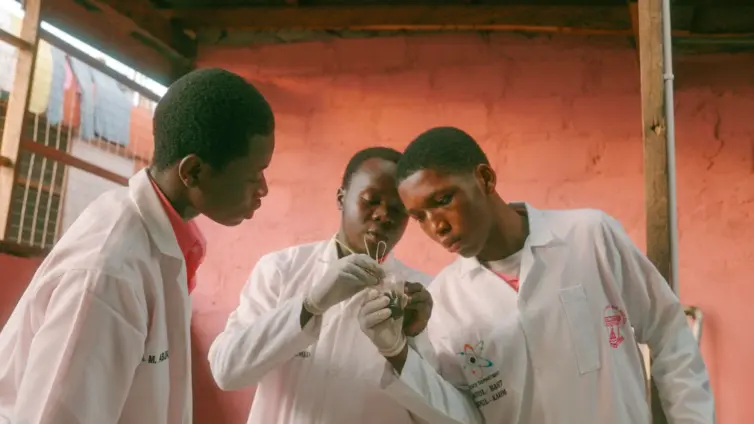Charl Kleinhaus, a 46-year-old Afrikaner farmer, left his family farm in South Africa’s Mpumalanga province seeking refuge in the United States, driven by what he describes as escalating threats and a sense of desperation. This move, facilitated by policies that came under scrutiny, throws light on the complex debates surrounding Afrikaner refugees and the perception of persecution they face. In an interview, Kleinhaus revealed that he received chilling death threats via WhatsApp, messages that catalyzed his decision to leave behind his home, possessions, and family. “We are coming for you, you better be awake,” one message read, instilling a profound fear for the safety of his children. The case raises significant questions about refugee status, the controversial issue of land expropriation in South Africa, and the politicization of asylum processes. This article explores Kleinhaus’s story, the controversies surrounding Afrikaner refugee claims, and the broader implications of this delicate situation.
Having abandoned his five-bedroom house, his car, and even his dogs, Kleinhaus now resides in a budget hotel in the US, a stark contrast to his life back in South Africa. The primary motivation for his drastic move, he explains, was the safety of his children, particularly after the tragic loss of his wife in 2006. The ability to seek refuge in the US was made possible in part by policies that considered Afrikaners as potential refugees facing persecution. Kleinhaus acknowledges the help he received. “I felt finally somebody in this world is seeing what’s going on,” he stated, expressing his gratitude for the opportunity to seek a safer life. But this pathway to asylum is fraught with controversy.
The refugee status of Afrikaners is deeply contentious. The claim of an ongoing “genocide” against white farmers, often amplified by right-wing figures, has been widely discredited by objective observers and fact-checkers. South African President Cyril Ramaphosa, when asked about the emigration of some Afrikaners, has labeled them as “cowards” unwilling to address the country’s challenges from within. “As South Africans, we are resilient. We don’t run away from our problems. We must stay here and solve our problems,” Ramaphosa asserted. The resettlement of Afrikaners under such circumstances is often contrasted with the stricter treatment faced by other refugees, such as Afghans whose Temporary Protected Status was revoked, raising questions about equity and political motivations.
Critics argue that individuals like Kleinhaus are economic opportunists seeking to exploit asylum systems. They contend that being a victim of crime, while regrettable, does not automatically equate to persecution that warrants refugee status. While acknowledging that the murder rate of farmers in South Africa is statistically low, the fear of becoming a victim remains a palpable reality for many Afrikaner farmers. This fear is closely linked to the issue of land expropriation without compensation, a policy that has further fueled anxieties among the Afrikaner community.
Kleinhaus claims that the government’s claim on his land has rendered it essentially worthless, making it impossible for him to continue farming. “Your land becomes worthless – the land expropriation has gone too far,” he says. “People are scared of that.” President Ramaphosa has signed a law allowing the government to seize land without compensation under specific circumstances deemed to be in the public interest and equitable. However, the South African government maintains that no land has been seized to date, attempting to reassure the farming community that the process will be managed responsibly and fairly.
Concerns have also been raised regarding the vetting process of Afrikaner refugees seeking asylum in the US. Unlike typical refugee programs, the UN refugee agency was not involved in the screening process for the Afrikaners. This has led to questions about the thoroughness and impartiality of the vetting procedures. Furthermore, the discovery of antisemitic posts on social media attributed to Kleinhaus added another layer of controversy to his case.
Kleinhaus has since deleted the controversial posts and claims he copied and pasted someone else’s thoughts while under medical treatment, expressing regret for his actions. Despite the controversy, the Department of Homeland Security (DHS) has stated that it vets all refugee applicants and thoroughly investigates any claims of misconduct. The scrutiny surrounding Kleinhaus highlights the complexities and challenges involved in assessing refugee claims, particularly when political and social factors are heavily intertwined.
“I didn’t come here for fun,” Kleinhaus says, encapsulating the desperation and uncertainty that define his new reality. The case of Charl Kleinhaus underscores the ongoing debates about refugee status, political influence, and the legacy of apartheid in South Africa.
Acknowledging the possibility of being used politically, Kleinhaus relies on his religious beliefs, viewing his acceptance into the US as “an act of God.” He emphasizes his intention to contribute positively to American society. “People must not think we are just taking advantage of this. We come here to make a contribution to the country,” he asserts, expressing his hope for a future where he can integrate and thrive. Ultimately, Kleinhaus’s journey reflects a desperate search for safety and a belief in new beginnings, encapsulating the stark realities faced by many seeking refuge.
Image Source: MYJOYONLINE






















